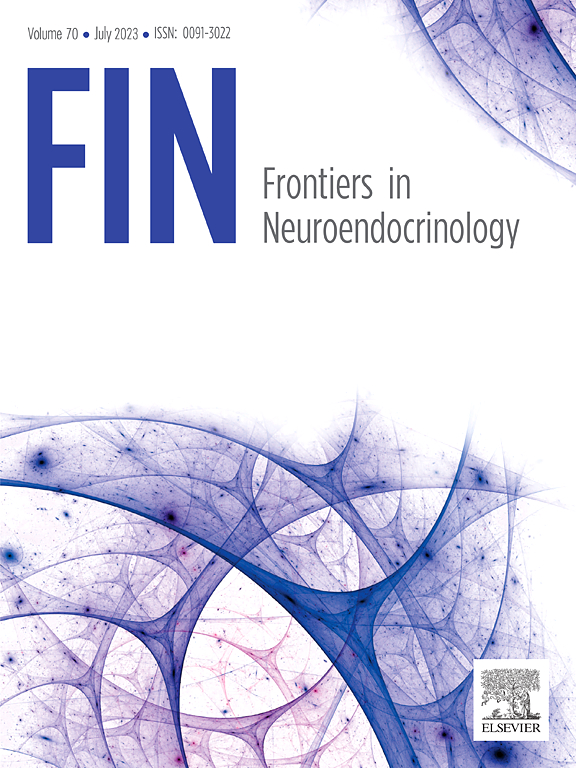应激适应反应在多发性硬化症中的作用。
IF 6.7
1区 医学
Q1 ENDOCRINOLOGY & METABOLISM
引用次数: 0
摘要
多发性硬化症(MS)是最常见的自身免疫性炎症性神经系统疾病,表现为中枢神经系统(CNS)白质的多灶性脱髓鞘病变。其发病机制涉及遗传和环境机制,导致免疫细胞介导的髓鞘破坏和轴突损伤以及中枢神经系统的胶质瘢痕。应激适应反应可能通过触发激素和神经肽的释放导致免疫失调和细胞因子产生的改变而导致MS恶化。应激适应反应与MS生理病理之间的确切联系尚不清楚,尽管神经免疫学研究显示MS患者在应激下细胞因子和淋巴细胞发生改变,这可能具有临床意义。应激系统的主要组成部分,即下丘脑-垂体-肾上腺轴、交感神经系统和多巴胺能系统的失调,已经在多发性硬化症患者中被描述。在这个关键的审查的作用,应激适应反应在MS的表现和恶化被描述。本文章由计算机程序翻译,如有差异,请以英文原文为准。
The role of the stress adaptive response in multiple sclerosis
Multiple sclerosis (MS) is the commonest autoimmune inflammatory neurological disease presenting multifocal demyelinating lesions in the white matter of the central nervous system (CNS). Its pathogenesis involves genetic and environmental mechanisms which lead to immune cell-mediated destruction of myelin and axonal damage and glial scars in CNS. Stress adaptive response might cause MS exacerbation by triggering release of hormones and neuropeptides leading to immune dysregulation and altered cytokine production. The exact link between the stress adaptive response and MS physiopathology is not clear, although neuro-immunological studies have shown alterations in cytokines and lymphocytes in MS patients, under stress, which might have clinical significance. Dysregulation of the principal components of the stress system, i.e. the hypothalamic–pituitary–adrenal axis, the sympathetic nervous system and the dopaminergic system, have been described in MS patients. In this critical review the role of the stress adaptive response in the manifestation and exacerbation of MS is described.
求助全文
通过发布文献求助,成功后即可免费获取论文全文。
去求助
来源期刊

Frontiers in Neuroendocrinology
医学-内分泌学与代谢
CiteScore
13.30
自引率
6.80%
发文量
62
审稿时长
68 days
期刊介绍:
Frontiers in Neuroendocrinology (FIN) publishes a wide range of informative articles including comprehensive reviews, systematic reviews, opinion pieces, and meta-analyses. While the majority of reviews are invited, we also embrace unsolicited reviews and meta-analyses, as well as proposals for thematic special issues, provided they meet our rigorous quality standards. In addition, we encourage authors to submit commentaries that concisely present fresh ideas or offer further analysis to delve deeper into the implications of an article published in our journal.
 求助内容:
求助内容: 应助结果提醒方式:
应助结果提醒方式:


